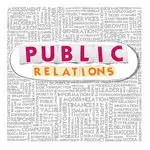This post was written by Alise Salins, a previous gun intern who is now out experiencing the world through her dream overseas adventure.
Asked to contribute to the Threesides blog, I thought to myself, as the intern, what could I possibly talk about? I’m no expert, I only have about a years’ experience under my belt, and I still have no idea what I really want to be when I grow up – apart from working at Disneyland, but that’s another story.
So it got me thinking. What can I share? I can’t offer expert opinions with any sort of authority. But what I can give you, from one newbie to another, is a recap of my experience landing my job.
How did I get here? It didn’t start in the class room and it certainly didn’t start with a Google search. It started much earlier, when my mum dragged me to lunches with the Australian Society of Travel Writers, introduced me to everyone and forced me to mingle. It began when I met gorgeous young PR professionals with fabulous jobs with global companies like Accor and Tourism Australia. I was lucky to be immersed in the world of PR early on.
And this is something I can share with you – my top 5 tips on landing a PR job:
Contacts. This one’s crucial. If you want to cut it in the world of PR you’ve got to have contacts. Be nice to everybody – you never know whose path you might cross later on in life. I met my current bossmany years ago at a conference in Sydney. And voila, now I work for him. You will accumulate great contacts over time, but make sure you keep in sweet and always deliver on what you promise.
Communication. So you might think this one is a no-brainer and while this is obviously a very important skill to have when working in PR, there are many facets of ‘communication’ that a young professional should have down pat when trying to land a great job.
First up, writing. Is it up to scratch? Read as much as you possibly can. Practice also makes perfect, so if your writing isn’t as snappy as you’d like it to be, have someone look over it and provide feedback. With writing, you also need to take into account what audience you are trying to reach. Different writing styles work better with different channels
Communicating with peers is also important. Always conduct yourself with the highest amount of professionalism. Be polite, especially via email, and make sure you are clear when speaking on the phone. Also when phoning people, always use your full name. Remember, journalists may speak to many PRs a day and you want them to remember you.
Content, organise it, especially online. While it’s great if you’re active on social media, and every communications professional should be, be careful what you’re posting. Remember, despite what you may think, once you’ve put something in writing, especially online, it’s pretty much permanent. The internet is, however, a wonderful tool and can provide you with a great space for self-promotion. Start a blog, tweet regularly and let the world know how great you are – but always keep in mind, ‘what would a future employer think if they read this?’
Crowd – get in with them. It’s so important to get out and meet people. Take up networking opportunities, and participate in seminars and conferences that relate to your field. Set up meetings with dream employers, don’t be afraid – most people that work in communications are happy to help, and nearly all have been in the same position. Some will be able to offer you a job, and some maybe just advice. Either way, it’s extremely helpful. Always dreamt of moving interstate? While on holidays make appointments to pop in and meet with PR gurus you can see yourself working for. Want to set yourself apart? Do something different – we’re in PR – we’re meant to be all about getting our messages out there, changing attitudes and getting people to act. Always interact with people personally, pick up the phone. If you’ve met someone at a function, remind them about it.
Chance – take every one you can. Join your clubs and societies while at university, if you’re not the most academic student, this is what will set you apart once you’ve graduated. Employers want to see actions and results, not grades, when you’re applying for positions. I was the president of the University of Canberra student PR society the Public Relations People during my final year of study. While it was a huge commitment and responsibility, it was invaluable. Volunteer and get involved in student life on campus. Put your hand up for any and every opportunity that comes your way, not only will it look great on your CV, you’ll gain precious experience.
Yes, I am still the newbie, and I still have a long way to go in the big wide world of public relations and media, but I’m on my way and I hope my top tips help you out.
– – Alise Salins
